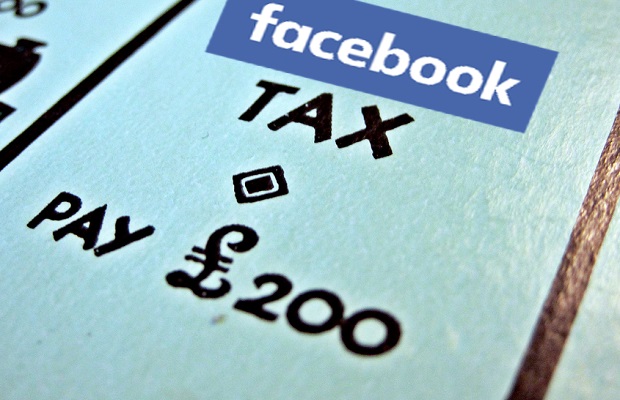Facebook has defended paying just £4,327 in UK corporation tax for the whole of last year, saying it operates within the law.

The amount is less than the average UK worker, who with an annual salary of £26,500, would contribute a total of £5,393 through income tax and national insurance.
The findings, revealed in its latest company accounts, indicate that Facebook operated at a loss of £28.5m in the UK, meaning that it only had to pay a small sum in corporation tax.
The operating loss comes despite the social network making a payout of more than £35m to staff as part of a share bonus scheme.
The scheme meant Facebook’s 362 UK staff members took home an extra £97,790 each in 2014 – pushing their total pay packet to an average of £210,614.
The payouts, along with a profit base in Ireland, meant the firm was only liable for the small tax bill for the year, despite registering revenues of £105m.
A spokesperson for the company said: “We are compliant with UK tax law and in fact all countries where we have employees and offices. We continue to grow our business activities in the UK.”
The company pointed out it was taxed on their profit figures, not the amount of revenue they generate in the UK, and argued that all of its UK staff paid tax on their income – including the money they received from the share bonus scheme.
Facebook is the latest in a long line of multinational firms to be criticised over the size of their UK tax bills.
Google, Apple, Starbucks, Amazon, and Vodafone have also come under fire in recent years.
In response, Chancellor George Osborne has pledged to crackdown on tax avoidance by large companies in the UK, nicknamed the ‘Google Tax’, which came into effect in April 2015
Separately, the chancellor has introduced ‘BEPS rules’, which are aimed at cracking down on “base erosion and profit-shifting”: the practices used by many global firms to minimise their tax liabilities by recording profits in low-tax jurisdictions.
The chancellor has repeatedly cut corporation tax, which is levied on company profits, but he insists that in exchange all firms must pay their fair share to the exchequer. The main corporation tax rate was 28% when Osborne arrived at the Treasury, and is 21% today.
Photo source: http://taxrebate.org.uk/
